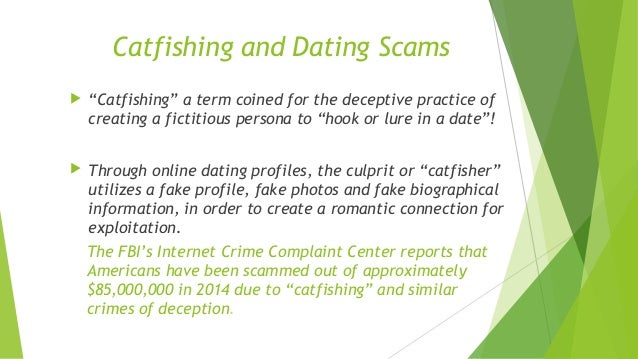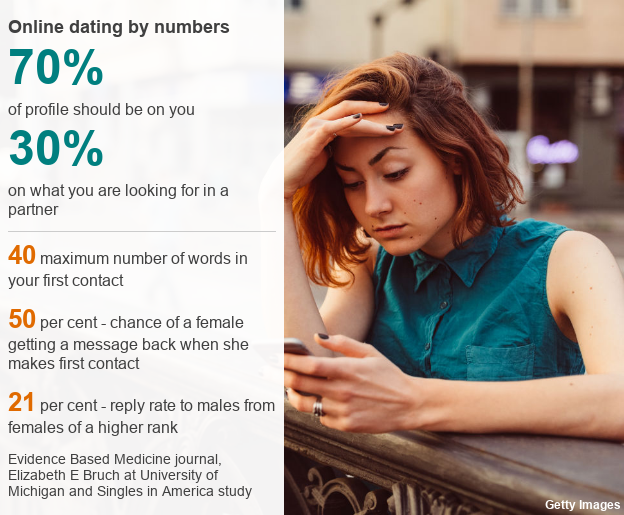Safe Dating Profile
Identifying a fake dating profile and spotting these scammers first is part of our responsibility as online daters. We need to be aware of our actions to help prevent becoming a victim. The 13 signs that a dating profile is fake on PoF, Match, and any other website will help guide you through your online experience. Why online dating is good. It’s interesting how, with certain patterns, you can make a great online dating profile.I spoke with Whitney Perry, the founder of the Single Online Dating Guide, who shared a great analogy.If you are wearing a dress that has zippers up the side, you can show what the dress looks like in a different way to different people by zipping it up a bit. If your dating profile has a photo that also shows up on your Instagram or Facebook account, it will be easier for someone to find you on social media. Avoid connecting with suspicious profiles. If the person you matched with has no bio, linked social media accounts, and has only posted one picture, it may be a.

Well, it finally happened: Facebook has entered the online dating sphere. Although Facebook Dating began rolling out in numerous countries just about a year ago, it only just launched in the United States, going live on Sept. 5. If you’re into the online dating scene, you’re undoubtedly wondering whether Facebook Dating is safe — which is absolutely an essential topic to consider before deciding to use the service or not. When it comes down to it, the bottom line is that Facebook Dating is about as safe as any other kind of online dating: There are always risks, and generally we’ve got to be realistic about what we can and can’t control and act accordingly; however, the system does come with some features in place to help mitigate some of those risks.
First things first: If you’re concerned about privacy, Facebook Dating is opt-in — so if you have no interest in using the service, it won't be an issue for you. A Facebook Dating profile will never be made for you unless you choose to make one, so you can feel free to straight-up ignore the feature and carry on. What’s more, if you do opt in, your Facebook Dating activity isn’t share to the rest of Facebook, so the only way people who don’t match with you will know you’re using Facebook Dating is if you share with them that you are. (It also goes without saying that you can delete your Facebook Dating profile at any time, too, right? Right.)
You also have a high degree of control over both what’s in your Dating profile and which elements of your profile get shown to other users. According to a press release on Facebook Dating’s safety and privacy tools provided to Bustle, the only thing that will come with you from your regular Facebook profile to your Facebook Dating profile (and again, only if you choose to create a Facebook Dating profile in the first place) is your first name and age; you choose whether any other information makes its way from one profile to the other. Additionally, you’re also in control of how you appear to other users: Per the press release, “whether you provide different information than you have on your Facebook profile, and if you share details such as your hometown, religion, occupation, and more within Dating” are entirely up to you.
One of the other safety-related perks of Facebook Dating is that you can choose specifically to be matched with friends of your Facebook friends — meaning you can vet people with whom the service matches you with people who already know them. Of course, that’s not necessarily a complete fail-safe; there’s only so much anyone can really know about anyone else, and to use one of the most serious examples, abusers are often really good at keeping their abusive actions hidden from other people. However, this feature of Facebook Dating does provide an additional way to check up on the people you’re matched with — if you’re matched with a friend of someone you trust and ask about them, you can take their opinion into consideration before you decide to message or meet up with your match.
If you do decide to meet up with someone you match with on Facebook Dating, you can also use the “Share Your Plans” feature to let a trusted friend know the details of our date. Basically, this feature is just a high-tech version of the oft-repeated dating advice to let someone you trust know where you’re going, when, and with whom when you’re seeing someone you’re still getting to know; the idea is for someone to be able to check on you in the event that something goes south. The difference here, though, is that “Share Your Plans” lets you share your exact location live you can share your exact location live — so, your safety buddy won’t just know where you are because you told them; they’ll actually be able to see where you are—and if you’re still where you told them you’d be.
Lastly, there are block features built into Facebook Dating. In the privacy settings section of Dating, tapping on “Block people in Dating” will allow you to build a list of anyone you don’t want to have access to you or your profile within Dating. Anyone you’ve blocked won’t be able to see your Dating profile or send you messages; they also won’t be suggested to you as potential matches. (Note, though, that putting someone on your Dating block list doesn’t affect interactions on the rest of Facebook.) Additionally, photos, links, payments, or videos can’t be sent in Facebook Dating messages — which means that no one will have to contend with unsolicited dick pics, among other things. And honestly, anything that cuts down on the number of unsolicited dick pics ambushing unsuspecting people is a good thing.

Again, though, it’s always worth exercising other common-sense safety measures — and remembering that there’s only so much we can control. As Cassie Werber pointed out at Quartz in 2017, statistics on how safe or dangerous online dating is aren’t readily available; the unfortunate reality is, though, that even though online dating is commonplace these days and can often lead to successful and healthy relationships, there’s still a certain amount of risk involved. It’s very easy to create a fake online dating profile, for example — and it’s easy to create a fake Facebook profile, as well. That means that creating a fake Facebook Dating profile probably won’t be all that difficult.
So, even if Facebook Dating’s goal is to be as safe and secure as possible, you’ll still want to stack the decks in your favor, safety-wise: Don’t reveal too much about yourself right off the bat; Google both yourself (so you know what your potential matches can find out about you) and your matches (so you can verify they’re who they say they are) before meeting up; when you’re just getting to know someone, make plans to meet up in public places, make sure you have your own transportation lined up, and tell someone you trust where you’re going, when, and with who. You can check out more online dating safety tips here.
More than 40 million Americans use online dating services or dating apps. As is the case when meeting someone new, whether online or offline, it’s wise to keep a few safety precautions in mind. Dating apps don’t conduct criminal background checks on users, so it’s up to each user to determine if they are comfortable meeting up with someone. However, it is important to remember that if you do experience sexual assault or violence while dating online or using an app, it is not your fault.
Below are some steps you can take to increase your safety when interacting with others through online dating apps and services—whether you are interacting virtually or in person. Like any safety tips, they are not a guarantee, but they may help you feel more secure.
When Connecting Online
Use different photos for your dating profile. It’s easy to do a reverse image search with Google. If your dating profile has a photo that also shows up on your Instagram or Facebook account, it will be easier for someone to find you on social media.
Avoid connecting with suspicious profiles. If the person you matched with has no bio, linked social media accounts, and has only posted one picture, it may be a fake account. It’s important to use caution if you choose to connect with someone you have so little information about.
Check out your potential date on social media. If you know your match’s name or handles on social media—or better yet if you have mutual friends online—look them up and make sure they aren’t “catfishing” you by using a fake social media account to create their dating profile.
Block and report suspicious users. You can block and report another user if you feel their profile is suspicious or if they have acted inappropriately toward you. This can often be done anonymously before or after you’ve matched. As with any personal interaction, it is always possible for people to misrepresent themselves. Trust your instincts about whether you feel someone is representing themself truthfully or not.
The list below offers a few examples of some common stories or suspicious behaviors scammers may use to build trust and sympathy so they can manipulate another user in an unhealthy way.
- Asks for financial assistance in any way, often because of a sudden personal crisis
- Claims to be from the United States but is currently living, working, or traveling abroad
- Claims to be recently widowed with children
- Disappears suddenly from the site then reappears under a different name
- Gives vague answers to specific questions
- Overly complimentary and romantic too early in your communication
- Pressures you to provide your phone number or talk outside the dating app or site
- Requests your home or work address under the guise of sending flowers or gifts
- Tells inconsistent or grandiose stories
- Uses disjointed language and grammar, but has a high level of education
Examples of user behavior you may want to report can include:

- Requests financial assistance
- Requests photographs
- Is a minor
- Sends harassing or offensive messages
- Attempts to threaten or intimidate you in any way
- Seems to have created a fake profile
- Tries to sell you products or services
Wait to Share Personal Information. Never give someone you haven’t met with in person your personal information, including your: social security number, credit card details, bank information, or work or home address. Dating apps and websites will never send you an email asking for your username and password information, so if you receive a request for your login information, delete it and consider reporting.
Don’t Respond to Requests for Financial Help. No matter how convincing and compelling someone’s reason may seem, never respond to a request to send money, especially overseas or via wire transfer. If you do get such a request, report it to the app or site you’re using immediately. For more information, check out the U.S. Federal Trade Commission's tips on avoiding online dating scams.
When Meeting in Person
Video chat before you meet up in person. Once you have matched with a potential date and chatted, consider scheduling a video chat with them before meeting up in person for the first time. This can be a good way to help ensure your match is who they claim to be in their profile. If they strongly resist a video call, that could be a sign of suspicious activity.
Tell a friend where you’re going. Take a screenshot of your date’s profile and send it to a friend. Let at least one friend know where and when you plan to go on your date. If you continue your date in another place you hadn’t planned on, text a friend to let them know your new location. It may also be helpful to arrange to text or call a friend partway through the date or when you get home to check in.
Meet in a public place. For your first date, avoid meeting someone you don’t know well yet in your home, apartment, or workplace. It may make both you and your date feel more comfortable to meet in a coffee shop, restaurant, or bar with plenty of other people around. Avoid meeting in public parks and other isolated locations for first dates.

Safe Dating Profiles
Don’t rely on your date for transportation. It's important that you are in control of your own transportation to and from the date so that you can leave whenever you want and do not have to rely on your date in case you start feeling uncomfortable. Even if the person you're meeting volunteers to pick you up, avoid getting into a vehicle with someone you don’t know and trust, especially if it’s the first meeting.
Have a few ride share apps downloaded on your phone so in case one is not working when you need it, you’ll have a backup. Make sure you have data on your phone and it’s fully charged, or consider bringing your charger or a portable battery with you.
Stick to what you’re most comfortable with. There’s nothing wrong with having a few drinks on a date. Try to keep your limits in mind and do not feel pressured to drink just because your date is drinking. It can also be a good idea to avoid taking drugs before or during a first date with someone new because drugs could alter your perception of reality or have unexpected interactions with alcohol.
Enlist the help of a bartender or waiter. If you feel uncomfortable in a situation, it can help to find an advocate nearby. You can enlist the help of a waiter or bartender to help you create a distraction, call the police, or get a safe ride home.
Safe Dating Profile
Trust your instincts. If you feel uncomfortable, trust your instincts and feel free to leave a date or cut off communication with whoever is making you feel unsafe. Do not worry about feeling rude—your safety is most important, and your date should understand that.
If you felt uncomfortable or unsafe during the date, remember you can always unmatch, block, or report your match after meeting up in person which will keep them from being able to access your profile in the future.
How To Write A Dating Profile
Sexual assault and harassment are never acceptable and are never the victim’s fault no matter what you were wearing, drinking, or whom you were with. The National Sexual Assault Hotline (800.656.HOPE and online.rainn.org) is here to listen and provide resources, and is anonymous, free, and available 24/7.